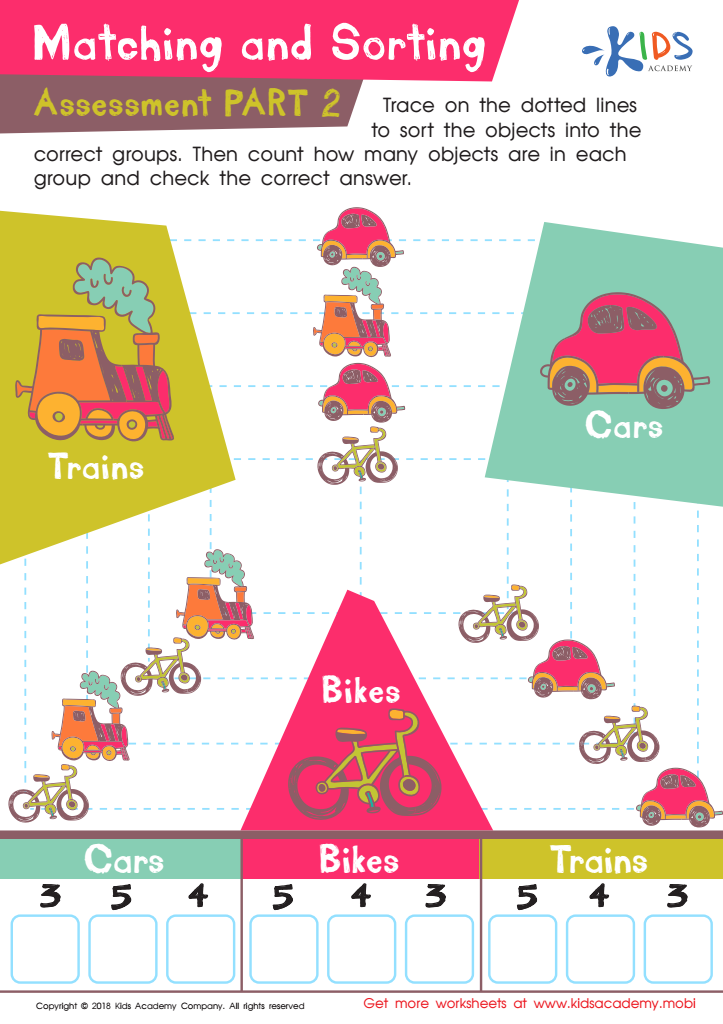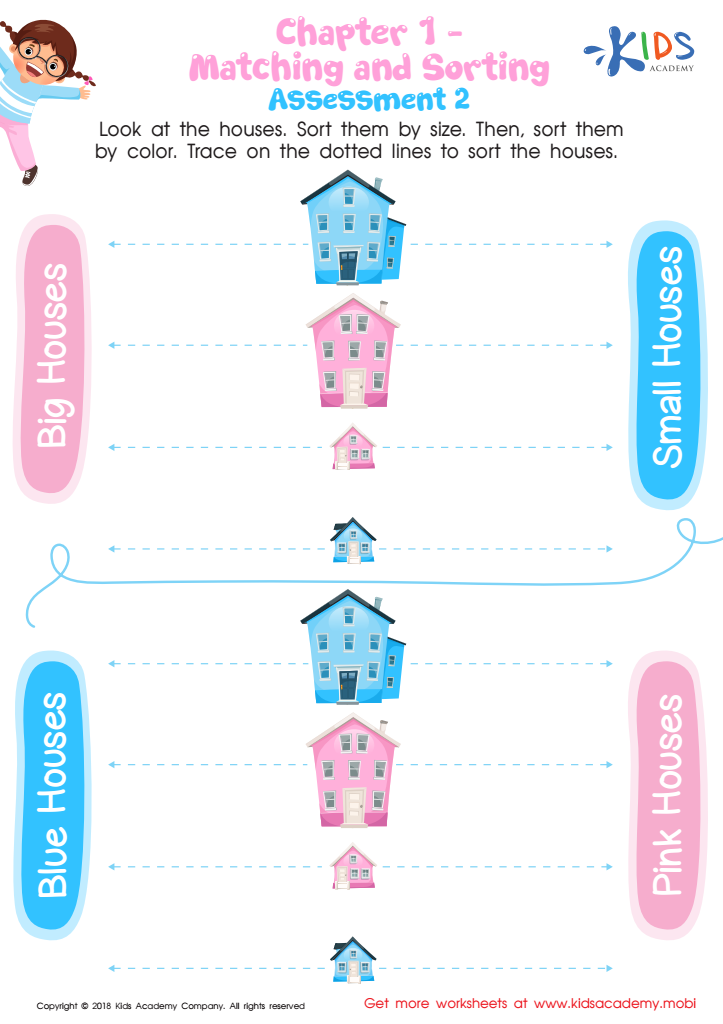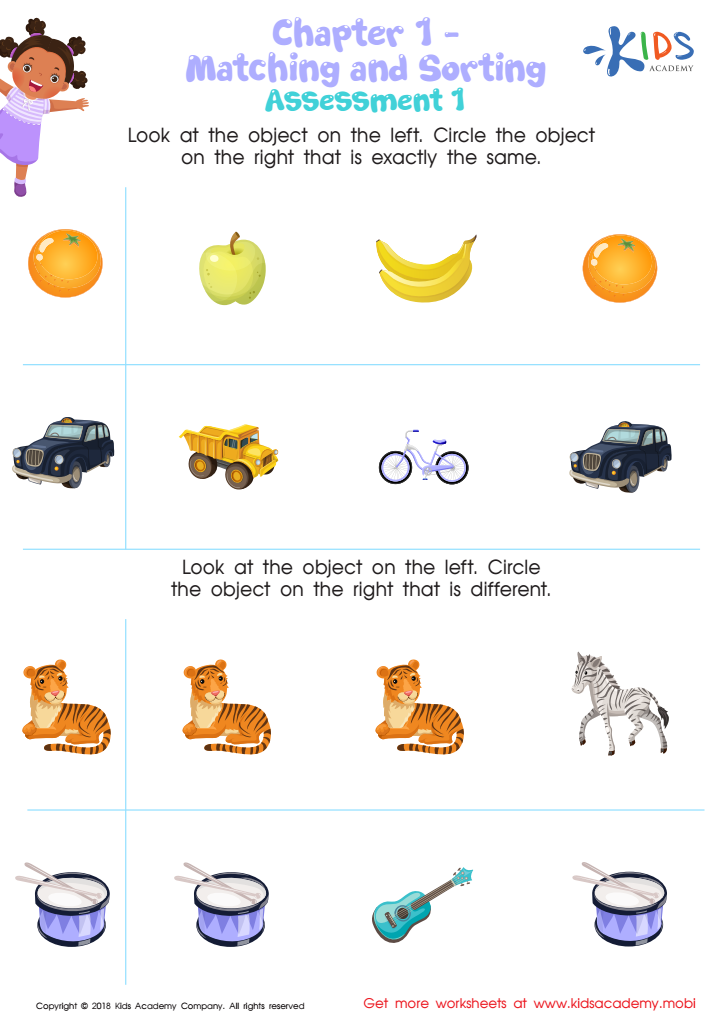Comparing Fractions Sorting Worksheets for Ages 5-6
3 filtered results
-
From - To
Introducing our Comparing Fractions Sorting Worksheets, perfect for children aged 5-6! Designed to build essential math skills, these engaging worksheets help young learners understand fraction comparisons through fun sorting activities. Our thoughtfully crafted exercises encourage kids to explore fractional parts in a playful, interactive manner, making foundational math concepts accessible and enjoyable. By visually differentiating between larger and smaller fractions, children gain confidence in their numerical skills and prepare for advanced math challenges. With vibrant illustrations and simple instructions, our Comparing Fractions Sorting Worksheets make learning exciting and effective for early grade students. Boost your child's math proficiency today!


Matching and Sorting for Kindergarten: Assessment 2 Worksheet


Matching and Sorting for Preschool: Assessment 2 Worksheet


Matching and Sorting for Preschool: Assessment 1 Worksheet
Comparing Fractions Sorting activities for ages 5-6 are crucial for several reasons. At this young age, children are developing foundational numerical skills that are critical for their future success in mathematics. Engaging in activities that involve comparing and sorting fractions helps solidify their understanding of basic math concepts such as parts of a whole, equality, and proportionality.
For parents and teachers, these activities offer valuable insight into each child's comprehension level, allowing for tailored instruction and support. Comparing fractions also encourages problem-solving skills and logical reasoning. By recognizing that 1/2 is larger than 1/4, children begin to understand order and sequence in a tangible way, laying the groundwork for more advanced mathematical thinking necessary in later grades.
Additionally, sorting fractions engages students in hands-on learning, making math fun and interactive. This type of activity promotes fine motor skills, visual perception, and cognitive development. Encouraging children to explain their reasoning as they sort fosters communication skills and deeper conceptual understanding.
Overall, these early explorations with fractions build a robust mathematical foundation, essential for academic achievement and everyday life skills, like understanding measurements and dividing objects or quantities fairly. Therefore, parents and teachers should prioritize Comparing Fractions Sorting activities to support holistic child development.

 Assign to My Students
Assign to My Students
















